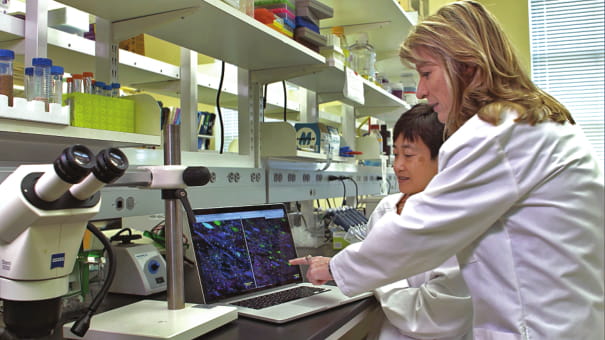Nervous System Injury and Neuroscience
The severe consequences of brain injury are increasingly recognized in athletics, the military, and the elderly, highlighting the relevance of concussion research to the entire community from young to old. Sports and recreational injuries account for the majority of concussions. In addition, mild traumatic brain injuries (MTBI) result from accidents (e.g., motorvehicle, bicycle, falls) and injuries suffered by military and first-responders. To address this pressing need the major initial research component of the Brain, Health and Human Performance (BHHP) program will be Nervous System Injury and Neuroscience (NSIN). This research focus also reflects the recognized strengths in relevant areas within the University of Maryland.

The Shock Trauma and Anesthesiology Research Center (STAR) in the SOM at UMB includes nationally recognized experimental and clinical TBI research programs. Faculty from the Colleges of CMNS, BSOS, Engineering and Public Health at UMCP will contribute expertise in brain imaging, bioinformatics, neuroscience, cognitive and motor function. Further development of inter-campus research partnerships will build upon these strengths in rapidly developing areas relating to central nervous system trauma, including injury response, recovery and prevention.
BHHP research will focus on three major thematic areas:
- Development of new techniques for neuroimaging and monitoring, biomarkers and interventions
- Novel approaches to recovery including diet, exercise, and cognitive training
- “Omic” approaches: large scale, fine-grained analysis of whole body response to injury (genetic, microRNA, microbiome)
A central focus of our mission is the development and utilization of advanced imaging technologies- including live cell imaging, magnetoencephalography, experimental spectroscopy.